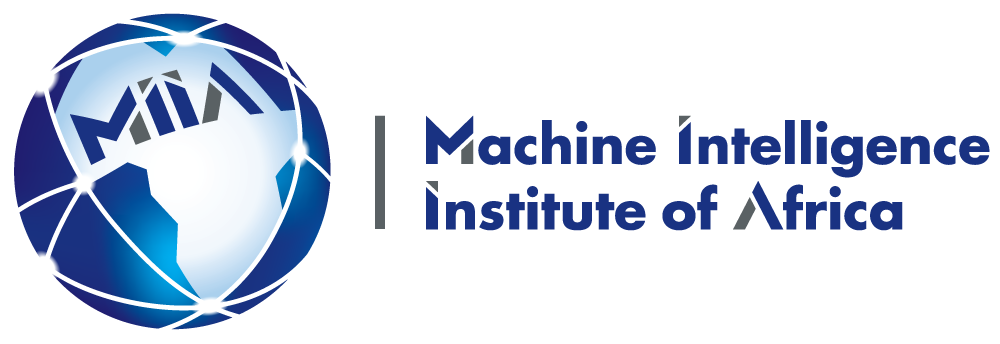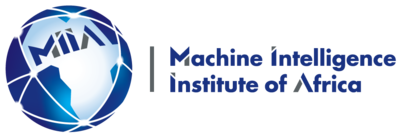Projects
Projects Overview
We would like to encourage the MIIA community to propose as many project ideas as possible. We welcome any application, research or technology related projects that would help solve (or at least be a step towards solving) African problems, help to build a stronger more innovative community, advance the state-of-the-art in Machine Intelligence and Data Science, accelerates and supports entrepreneurial activity, and help drive long-term inclusive and sustainable scientific, technological and socio-economic development on the continent. Projects needs to be in scope of MIIA’s mission and go through an approval phase as outlined in Figure 1 below. For approved projects that are not already funded and do require funding (some approved projects don’t require funding), the MIIA organisation will aim to fund and/or getting funding for projects that are well-defined, properly resourced and adheres to specified criteria of the sponsors. If you have any questions, ideas, suggestions, and/or comments that relates to projects, please email us at info@miiafrica.org.
Click on the following buttons to respectively view the current projects and their status in the Projects Dashboard, submit a new project on the Submit Project page, and view the Projects Showcase for completed projects. See Project Collaboration with Trello for an introduction to Trello, what it is and how to use it.
Process for projects submission, execution and delivery
Figure 1 below provides a high-level overview of the process for project submission, execution and delivery and consists of the following phases:
- Approval phase
- Submit a new project on the Submit Project page.
- Once approved, see project registered on the Projects Dashboard page.
- Funding phase
- For approved projects that are not already funded and do require funding (some approved projects don’t require funding), the MIIA organisation will aim to fund and/or getting funding for projects that are well-defined, properly resourced and adheres to specified criteria of the sponsors.
- Initial funding requirements are specified in the project submission when a new project has been submitted on the Submit Project page.
- The funding status will be displayed on the Projects Dashboard page.
- Preparation phase
- The initial Project Leader will be the individual that has submitted the project on the Submit Project page.
- Assign a Project Leader, which could be the person that submitted the Project proposal or someone else in the MIIA community.
- Recruit individuals within the MIIA community that might be interested to work on your project. This can be done by utilizing MIIA’s collaboration tools such as Slack, Trello, Blogging, email, or via meetups and direct interaction.
- Setup a project board in Trello for project management and communication. See Project Collaboration with Trello for an introduction to Trello, what it is and how to use it.
- Use an existing Slack channel or setup a new channel for communication and community interaction related to the project. Slack can also be used for direct communication between team members on a project.
- Execution phase
- Projects management and communication are done through Trello. See Project Collaboration with Trello for an introduction to Trello, what it is and how to use it.
- Project communication, direct communication between team members and community interaction can be done via Slack.
- MIIA’s blog can also be utilised to report on milestones, learnings and significant progress or results.
- Completion phase
- Determine if project is in a completed state.
- Evaluate impact and benefit of project.
- Completed projects will be celebrates and displayed on the Projects Showcase page.
We are trying to keep the process effective and simple as possible within a broad framework of different types of projects. If you have any questions, ideas, suggestions, and/or comments that relates to projects and/or how to improve the process, please email us at info@miiafrica.org.
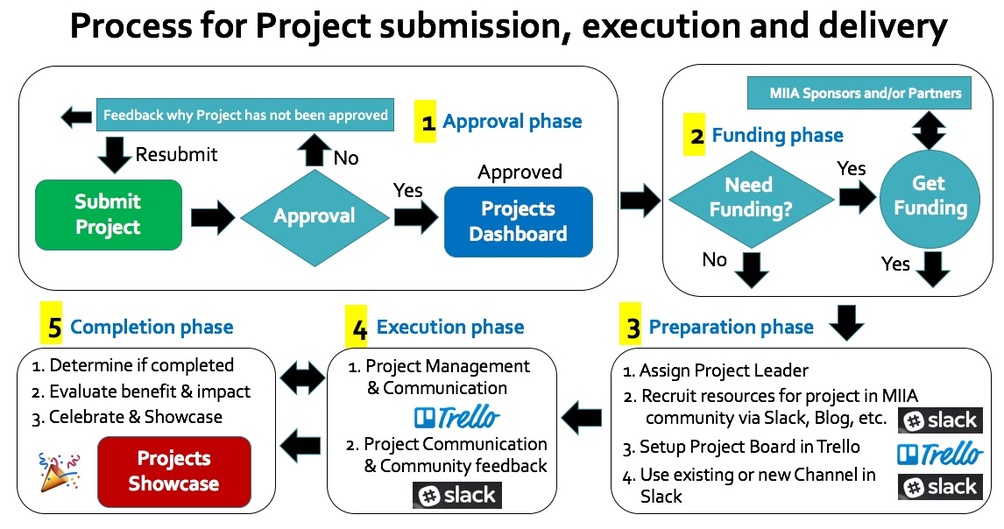
Figure 1 Phase within Process for Projects submission, execution and delivery
Projects for addressing African problems and opportunities
Figure 2 illustrates the impact areas that we envisage for MIIA projects with respect to addressing specific African problems & opportunities within certain industries, the high-level expected benefits, and the various types of partners that can help us achieve this.
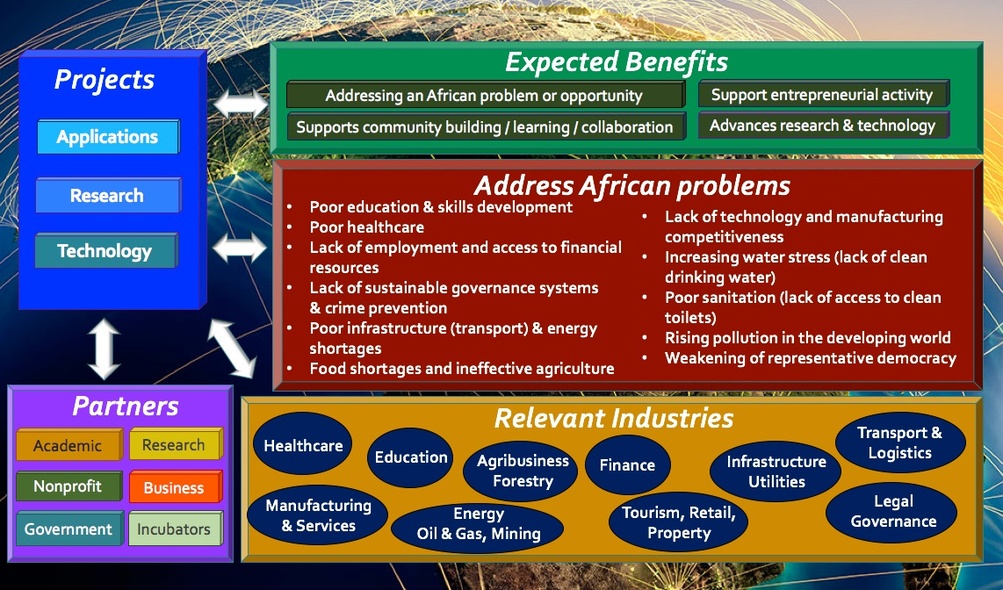
Figure 2 Projects addressing African problems & opportunities and expected benefits
Projects Background
In order to build an innovative community for Machine Intelligence and Data Science research and real-world applications in Africa, it is important for the MIIA community to partner with academic, research, and nonprofit organisations as well as business, startup incubators, and government organisations on MIIA projects, events and activities. As illustrated in Figure 3 below, we envision MIIA’s projects to be broadly classified into research, technology and application categories, whereas network and learning activities initially constitutes of supporting entrepreneurial activity, blogging and sharing, events and conferences, as well as training and mentoring activities.
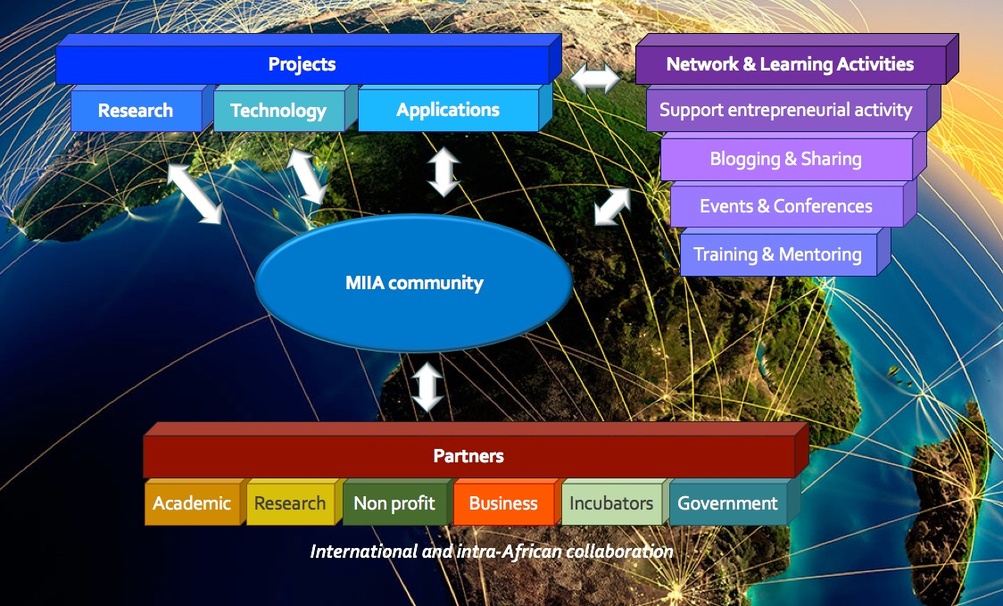
Figure 3 MIIA community collaboration with Partners with respect to Projects and Network & Learning Activitities
To provide some further structure to the project categorisation, Figure 4 outlines a framework for research, technology and application related projects which follows some of the high-level categories as defined in Bloomberg Beta’s 2016 machine intelligence landscape (see machine intelligence ecosystem as well as Figure 8 below for details). In order to take advantage of some of the state-of-the-art open source and commercial software (which include some tech user tools and platforms), we would like to see groups within the MIIA community to start collaborating on projects that utilises these and other software for both research and real world applications within the African context. As we envisage many of the industries listed below to be fully impacted by the application of Machine Intelligence technologies, a number of them are of particular importance to the socio-economic needs of Africa such as Healthcare, Education, Agriculture, Utilities (especially Energy and Water) and Finance (especially Mobile Financial Services). There is also tremendous opportunity to utilise machine intelligence technologies to support and optimise government services and infrastructure projects across the continent. Other application categories include Enterprise related systems support, Agents, and Autonomous systems (industrial, air, ground, and sea). Research and technology-related projects can for example include collaboration on machine intelligence open source projects, advancing the state-of-the-art in machine intelligence, specific research with partners, as well as collaboration on studies, papers, and books. Figure 5 shows some example industry and enterprise tools, systems, agents that can be utilised in research, technology and application related projects.
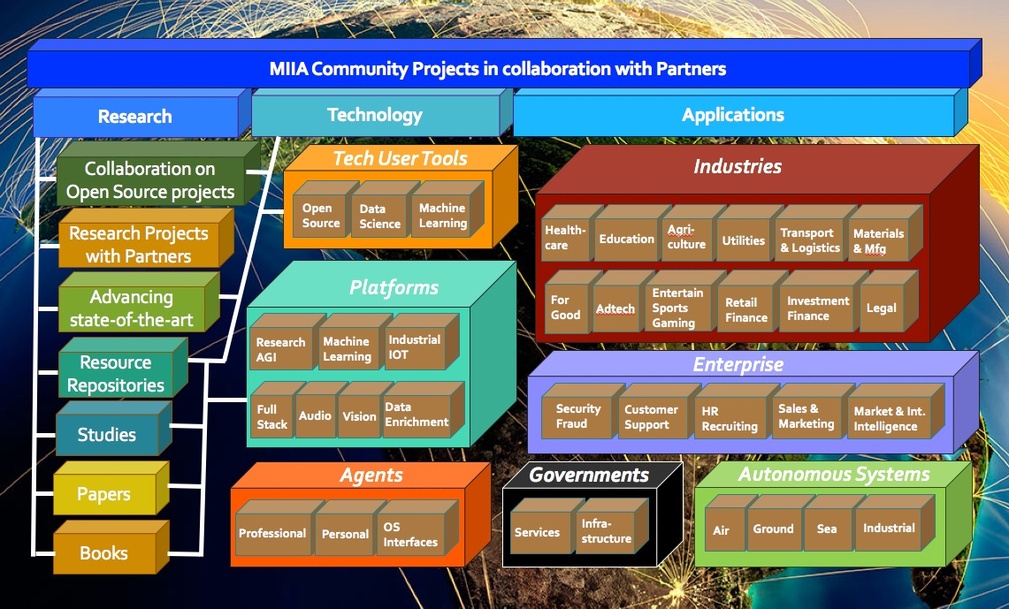
Figure 4 Framework for Research, Technology and Application related projects
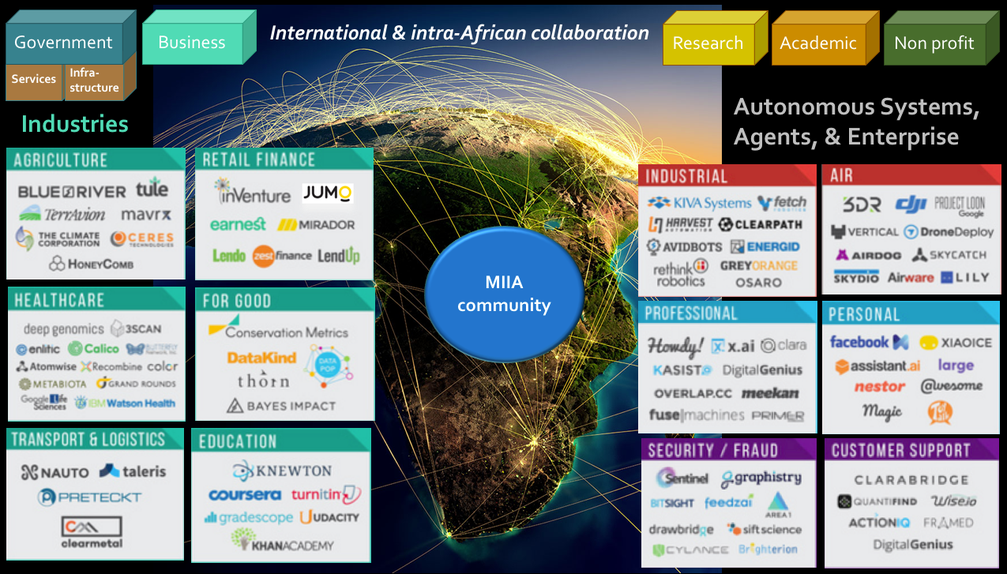
Figure 5 Some example industry and enterprise tools, systems, agents that can be utilised in Research, Technology and Application related projects
Figure 6 illustrates some example platforms and tech user tools that can be utilised in research and application related projects via international & intra-African collaboration. We envisage groups within the MIIA community to utilise a broad range of machine intelligence technologies which also includes, for example, Deep Learning, Deep Reinforcement Learning, Probabilistic Graphical Models, Hierarchical Temporal Memory, etc. via a range of open source programming and scripting languages and rich libraries (see, for example, rich ecosystems of cutting-edge packages provided by Python and R) as well as collaborate on open source Machine Intelligence projects such as TensorFlow, Spark MLlib, Theano & Pylearn2, Caffe, Torch7, Numenta, Scikit-Learn, DeepLearning4j, MS DMLT, etc. There are also a range of data science and machine learning tools and platforms available that can be utilised such as IBM Watson, AlchemyAPI, Oxdata H2O, Azure Machine Learning & Cortana Analytics, Rapidminer, Dato, Cortical.io, Domino, MetaMind, etc.
As a Machine Intelligence and Data Science organisation we also see MIIA collaborating with other non profit organisations operating in the Machine Intelligence, Artificial Intelligence and Data Science space such as OpenAI, MIRI, CODATA, Data Science Association, MIR Labs, etc. There are also plenty online resources available for Machine Intelligence and Data Science practitioners such DeepLearning.net, Data Science Central, KDnuggets, FastML, Galvanize, Quora – Data Science, Data Science Masters, Data Science Academy, DeepLearning.University, and many more as listed on NGDATA as well as KDnuggets – best data science online courses. On the academic or research side, there are many research groups and labs in this space that are worth considering to follow and/or collaborate with – as an example, see Deep Learning Research Groups. Within the African context, see also Figure 7 for a list of some of the top academic and research organisations on the African continent.
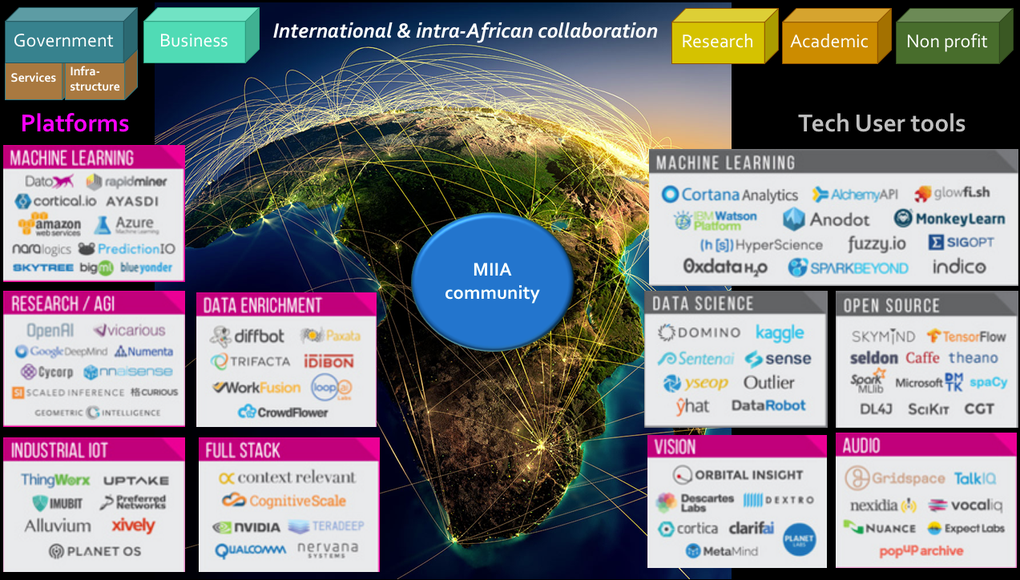
Figure 6 Some example platforms and tech user tools that can be utilised in Research, Technology and Application related projects
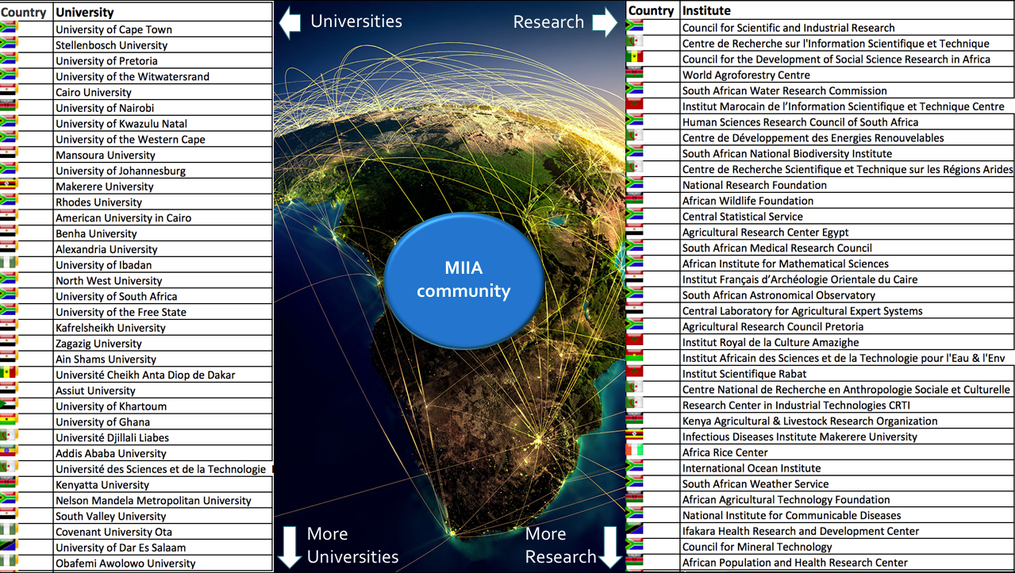
Figure 7 Some of the top academic and research organisations on the African continent.
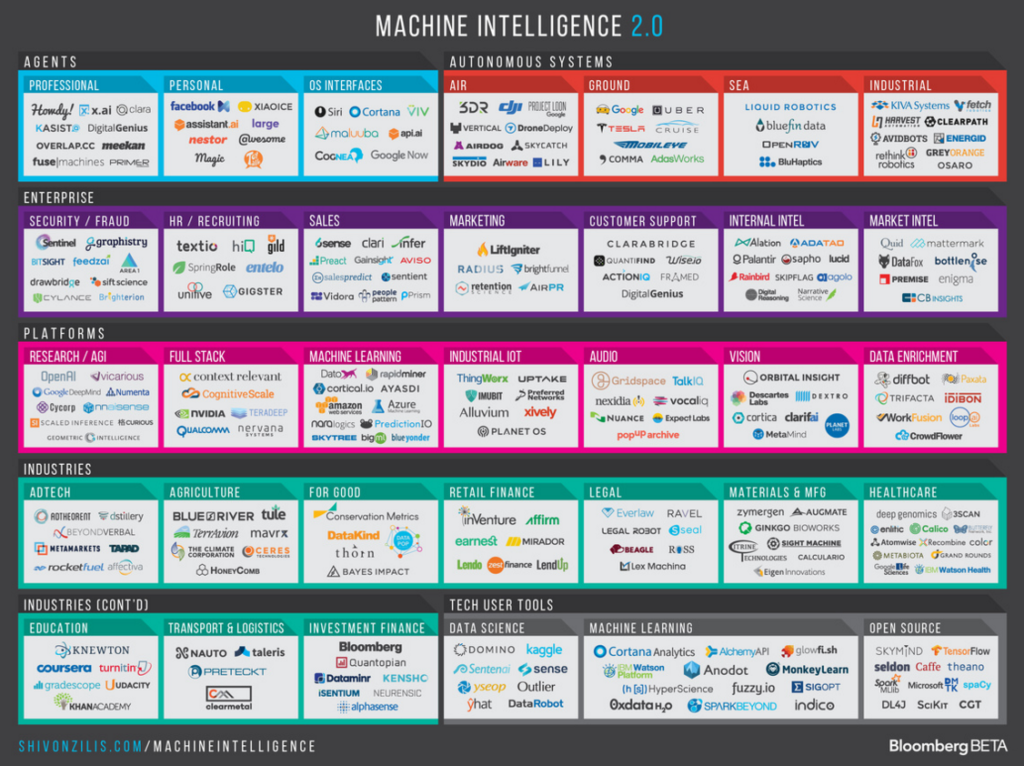
Figure 8 Machine Intelligence landscape
